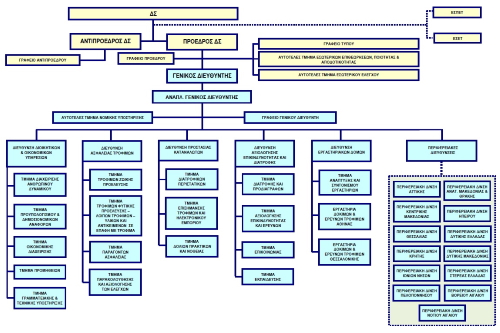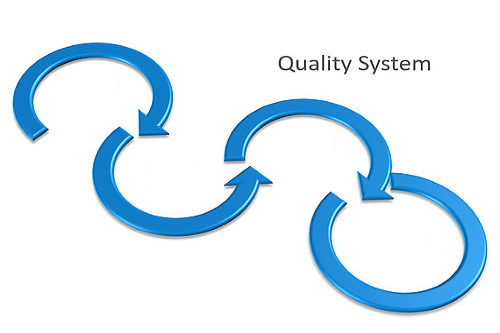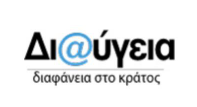EFET was established by virtue of L. 2741/GG 199/28-09-1999. It is a public entity supervised by the Ministry of Reconstruction of Production, Enviroment & Energy.
The responsibilities of EFET are the following:
- It sets quality standards that must be met by foods provided for consumption and the raw materials or additives intended to be added to foods in order to protect public health and to prevent consumers from fraudulent practises.
- It sets the standards and principles which should underlying the design and implementation of production system for safe food, in accordance with the law, by the food businesses and specifications for scientists that will deal with the installation of such systems, and for staff which work in food quality control laboratories installed in food businesses.
- Determines or endorses the guides to good hygiene practices in accordance with Regulation 852/2004 and other relevant international and European regulations and monitors compliance with these rules. The good hygiene practice is a prerequisite for the establishment and operation of any food business. In this context, it sets out the health conditions of the establishment and operation of food businesses and measures to be taken to ensure the safety and quality of the food.
- It makes up and maintains a register of food businesses and operates the control program carried out by its services or other authorities and services.
- Contact by its own, or by ordering other authorities or agencies the inspections, it coordinates and directs the inspections at all stages after primary production which include, inter alia, harvesting, slaughter and milking, i.e. the stages of manufacturing, processing, production, packaging, storage, transport, distribution, handling, marketing or supply to the consumer of fresh or processed food produced, handled or imported to our country or exported from it. It also carries out inspections on materials and articles in contact with food. The purpose of these inspections is to ensure food hygiene and the protection of consumer interests. These controls consist particularly of inspections of food businesses, to review the enterprises production system, and the sampling and analysis of food in its own laboratories or other food control laboratories.
- The inspection includes in particular the control of raw materials and additives, food during the production process of finished products, compliance with the rules of good hygiene practices in food company premises, in their machinery, personnel health and hygiene, cleaning and disinfection, combating rodents and insects in the packaging, storage, distribution and transport of food. Also, during the inspection it checks compliance with the technical parameters required by the legislation and also food labelling.
- The control of the production system includes the inspection of critical control points in the manufacturing process, control of the prevention measures implemented by businesses to address risks, control of processing and preservation requirements used by food premises (such as heating and cooling) to eliminate food risks. It also includes an assessment of the appropriate training for persons working in certain food sectors so that it can meet the requirements for the production of safe food and the control of documents and records substantiating the maintenance of the system.
- It participates in the relevant EU bodies and international organizations for the development of the relevant decisions, it ensures the adaptation and compliance with directives, regulations, decisions and recommendations issued by the institutions of the European Union and other International Organizations in matters within its competence and acts as the link with the competent services of the European Union and other international organizations on food control and in the context of rapid alert system for food and feed.
- It ensures the development of research programs related to its objective, working with authorities with similar subject and puts forward proposals for legislative acts or other measures in the field of its competence.
- It gathers processes and keeps information on statistics and records of inspections carried out by its services, in food premises and other matters of its competence.
- It ensures continuous information, education and training of its staff on technological developments and progress in new legislation and issues of consumer safety and food quality.
- E.F.E.T. may, within its powers and purpose of operation and mission, by decision of its Management Board, grant or to participate in programs, workshops, conferences and events in general of public services, legal persons of the public sector or the broader public sector, as determined by the relevant provisions, scientific societies, non-governmental organizations, unions or associations. This grant is exempt from any tax, fee and other charges in favour of the government or any third party.
- Exercise any other competence relevant to its purposes.
General operation of EFET
E.F.E.T. as a dynamically developing service in terms of responsibilities and standards, is the principal Food Control Body in Greece. Since its establishment on 13 January 2000 until today, its Management Board has set the development strategy of the organization, planning and proceeding to the integration of actions, which were the result of the creation and fulfilment of those conditions that set the organization basis of a modern organization able to respond successfully to its obligations. These obligations which create a huge dynamic range of the Body, but are also a huge responsibility towards Greek society, are as follows:
- The conduct of systematic inspections in food businesses (food production, marketing and distribution businesses). During such inspections it should be checked whether the rules on good hygiene practices, good manufacturing practices and hazard analysis and critical control point system (HACCP) are complied with.
- The systematic and unhindered control during transport and placing food on the market.
- The provision of technical assistance to productive sectors, either by issuing guides to good hygiene practice for each sector or through the various seminars which are organized under the auspices of E.F.E.T. to train workers and professionals.
- The confrontation of various food crises, a particularly common phenomenon in recent years (e.g. arising problems related to bovine spongiform encephalopathy, dioxins, acrylamide, aflatoxins and other mycotoxins, etc.)
- The development of Greek positions in food safety issues and their support in the EU,
- The proposal for the drafting of national legislation on food safety issues,
- The communication with the consumers in order to inform them and train them on food safety issues,
- The protection of consumers from fraudulent or deceptive trade practices or from the adulteration of food products,
- The coordination of other services for monitoring food safety issues,
- The installation of more efficient (and preventive) systems, for monitoring, accessing and managing of health risks with adoption of risk analysis and risk assessment principles.









